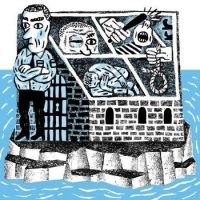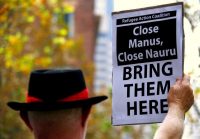
Faysal Ishak Ahmed's life was full of pain. Australia had a duty to protect him
“They’re trying to kill me, if they kill me take care of my son.”
These were the last words of Faysal Ishak Ahmad before his death on Christmas Eve. The Sudanese refugee uttered these words during his last visit to his friend Walid Sandal. This is not a scene from a tragic film or novel. This is the reality of the prison on Manus Island, hundreds of kilometres from Australia and in the middle of a silent ocean.
Faysal was born in Darfur, Sudan – a region associated with war, genocide and displacement. A symbol of affliction in western media. In other words, Faysal was born into war.… Seguir leyendo »













